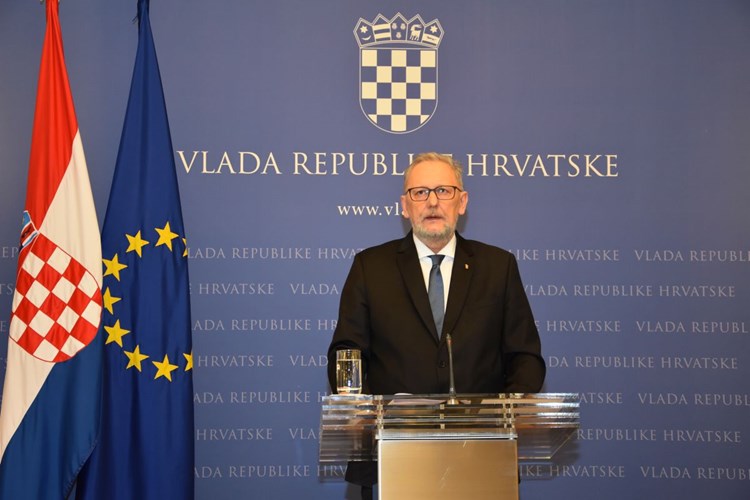- Published: 16.02.2018.
Interior ministry to collect, analyse data on air passengers
The Croatian government on Thursday forwarded to parliament a bill on the transfer and processing of personal data on air passengers for the purpose of preventing, discovering, investigating and prosecuting crimes of terrorism and other grave types of crime, thus transposing into national law an EU directive designed to make the prevention of international crime more efficient.
The bill defines the procedure for the transfer of personal data on air passengers which is collected by airlines and their handling by the relevant authorities and it identifies the institutions that seek and receive, process and store passenger data. The bill also defines for how long those data are kept, it identifies the authority in charge of depersonalising the data, and defines sanctions for non-compliance with legally prescribed obligations.
Airlines are not given any new obligations with regard to the collection of additional data that would differ from those which they have had so far, and they are required to forward them to the Ministry of the Interior information unit, said Minister Davor Bozinovic.
Under the bill, the Ministry of the Interior forwards air passenger data and results of its processing to the relevant authorities, which may be both domestic and foreign, for further action, said Bozinovic.
The cost of implementing the activities related to the bill will be covered with budget funds in the amount of slightly more than HRK 21 million as well as EU funds, said Bozinovic.
Gov't puts forward final bill on vocational education
The government also forwarded to parliament the final bill on vocational education which envisages the establishment of regional competence centres for vocational education which would be linked with the labour market, in line with the national education, science and technology strategy.
The bill will enable the drawing up of a national curriculum for vocational education, sector curricula and curricula of vocational education institutions.
It also envisages methods of improving practical training in vocational schools.
Minister Bozinovic told a press conference that it was odd that the public was debating a case of Croatian police unlawfully deporting a nine-year-old unaccompanied child yet there was no information of who the child was or when this occurred.
"What I do know is what I said yesterday that the chief police director wrote to the ombudswoman requesting information on this matter considering that police records do not have evidence of any such case," Bozinovic said when asked whether there was any news on that case, after Ombudswoman Lora Vidovic warned the police with regard to their behaviour toward migrants.
Asked whether he felt responsible for this case and whether he should step down if that information is proved correct, the minister retorted, "You reported that an unaccompanied child aged nine was deported from Croatia, what else did you report in that case, which child and when," he said.
Asked what would he do if it was his child, Bozinovic said that it would be difficult to imagine such a situation, adding that tragic events could occur with a child being in such a situation. However, he reiterated that no-one has proved that such a case even existed.
The police director is asking for information of where, when and which child because if something has been released in public then it would be proper and normal to say to whom and what this refers to, he concluded.
Yesterday Minister Bozinovic warned that something had been released in public before it was even communicated to the ministry after which, according to the media, the Ombudswoman's office replied that all the information concerning that case had been delivered to the authorities last June.
Asked how many migrants had entered Croatia since he took up office, Bozinovic said that statistics of this kind were not kept according to a timeline of appointments of office-holders.
As far as legal migrations were concerned, he said that in 2015, Croatia took on the obligation to reallocate a certain number of migrants based on the principle of solidarity with Greece and Italy. To date, 81 migrants have come to Croatia whereas 76 Syrian migrants have been resettled from Turkey.
There are about 500 people in migrant centres at the moment whereas last year, their number was 4,000.
Text: Hina
